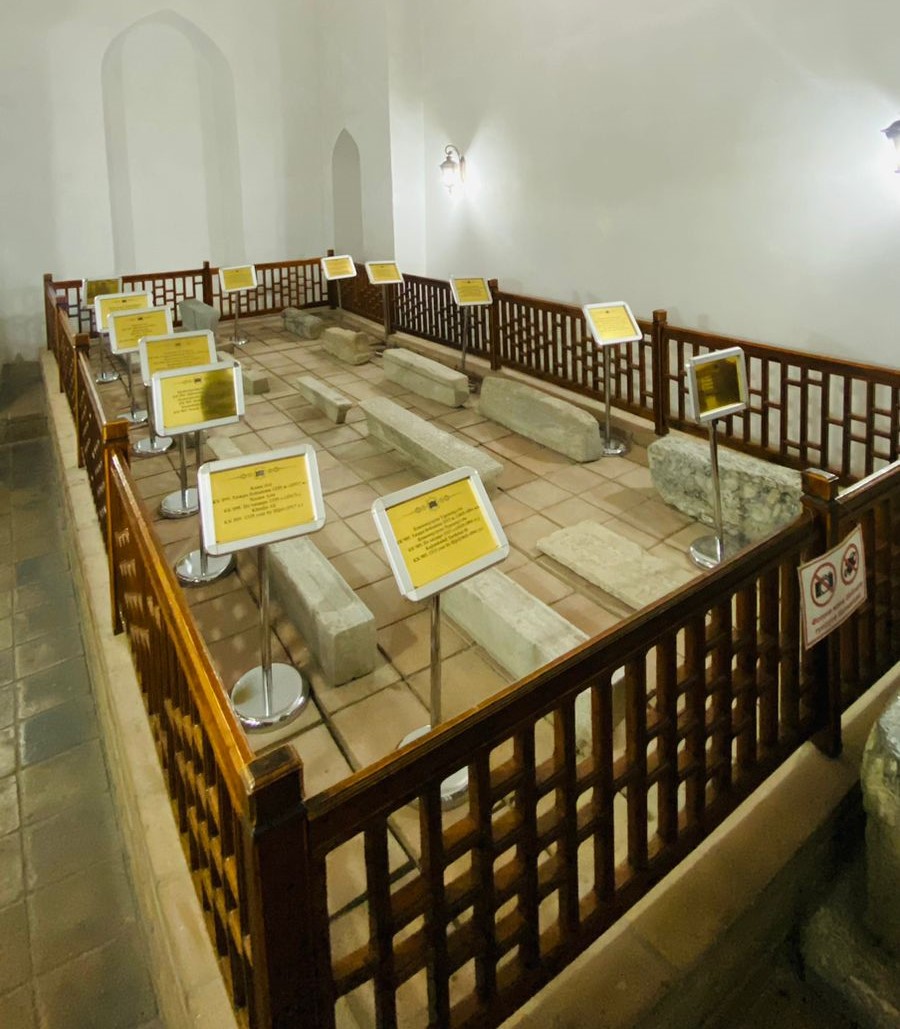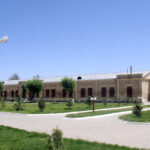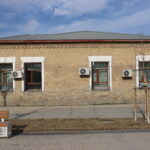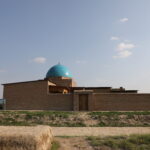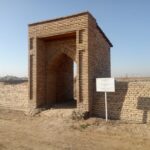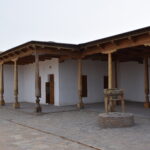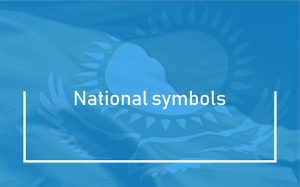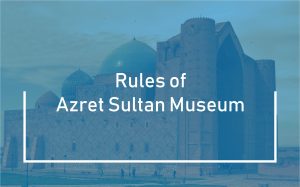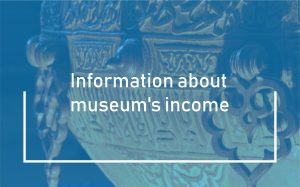(XVIІI century) (he was born approximately in 1701–1705 died in 1779–1780 уу.)
Argyn- Bolatkoja-Karakesek-Aksha-Boshan-Shanshar.
(Z.Sadibekov. Kazakh geneaological tree.- Tashkent, 1994.- p. 103–104)
Abylai Khan met with Shanshar-Karakesek peoples during a commemorating dinner when he was heading Ala-Tau. At this gathering, two drifters having a fight with each other knocked the hat off the head of the Khan. It was a fan from them to see how he would react.
But Abylai Khan didn’t show anger and didn’t pick up the hat from the ground. Instead, he went off as if nothing happened. However, after some time being at Kyzyljar market Abylai Khan suddenly recalled his insult that they dared to knock off a hat off his head and decided to bury them into a pot. One of them was from Karakesek and another from Tortauyl. The man from Karakesek happened to be a grandson of Kazybek, the son of Kazymbet – Janay, and from Tortauyl – Botakan. Abylai Khan replacing rage with mercy ordered to free them, but Botakan answered, that he was buried alive in a grave, where he was to be after his death. Botakan said his last words: “Here you are my death, truly it is better to die now than hang around being alive”, – and killed himself by disemboweling. People say that Bekbolat, the son of Kazybek Bi, and Suyindik Yedige, having heard of this news taking horses gathered a board of five Meirams. This was described in details by Mashhur Zhusip Kopeyuly in his “Kazakh genealogical tree”. We want to say by this that in Bekbolat’s board of Biys of that time there was Syrt Boshan – Tolemisuly Karamende Bi. In 1779–1780 Bekbolat Bi, the character of this occasion was 65 years old, and Karamende Tolemisuly was probably between 75 and 79 years old. It turns out that Karamende Bi was born in 1701 or 1705 and died in 1779–1780. According to ancient sources, Karamende Bi died six months earlier than Abylai Khan. If he died six months earlier than Abylai Khan, then it was the beginning of 1780 or the end of 1779, because Abylai died in the fall of 1780 (R.B. Suleimenov, V.A.Moiseev, p.132). Children Akmyrza and Akjigit buried their father in Turkestan in the mausoleum of Khoja Ahmаd Yasawi. Today the tombstone of Karamende Bi is kept in the “Small Aksaray” room. In the book of Saken Sairan Kerimuly, published in 2006, “Genealogy of Karamende” (Karaganda, “Bolashak-Baspa”) it is told about the descendants of Tanai. Tanai had three wives.
from the first wife: Kuttykadam
from Kuttykadam: Zhadik
from Zhadik: Tastemir, Bolat
from the second wife: Arykpan
from Arykpan: Tilep
from Tilep: Tinetey, Tilmanbet, Bimanbet
from the third wife: Otes, Zhetes
from Otes: Omirtai
from Zhetes: Karamende, Tolebay
As people of that time said, Tanai was changing his residence once in fifteen days and then migrating to a new place. He had a custom to fill a hole in the ground with salt, kurt, cottage cheese, and sometimes with soft sweet bread when people migrate to the place where he was earlier. This was done so as newcomers could eat those products. Tanai gave to his grandchildren Sazanbai and Tolemis, instead of their shares of property, only two horses, a spear and a bow. The main share – cattle, left for the youngest grandson Keshubai. Tolemis was a skillful shooter, his nature suited his character, so Tanai said: “Your offspring can become larger, I will help expand the territory”, and gave the land starting from the current Karakemer Kurozek, the Anzhan period, the grave of Azhem, from Tazbas to Kazykurty’s Tatybulak. The son of Tolemis Karamende at one time was a contemporary of Bekbolat – the son of Kazybek Bi, Zharylgaby – the son of Tuytey, Syngyr – the son of Senkibay batyr, Biheldi- the son of Omirtay. During the Jungar invasion, with his peers, the batyrs went on many military campaigns In 1726, he participated in the Shubarteniz battle, in 1727, in the Bulanty-Bileuty battle in the Ulytau region, in 1740–1742, in the battle against the Kalmyk invasion. Thus, the youth of Karamende born in the Karatau district of Syrdariya region, passed in the fighting against Kalmyks and Jungars. Day and night during severe fights he was in the ranks of the Kazakh troops, together with batyrs. Having gained experience in these fights the batyr became an advisor of biys. Chokan Valikhanov wrote many works about Bi’s role in the society. According to him, Bis should have known the norms of the Kazakh traditions and mastered oratory. They were recognized as a judge (Bi) only after they appeared on the courts of Bis, on clan gatherings, thereby demonstrating their elocution. Chokan Valikhanov in the same records wrote: “The children of Bis remained successors instead of their fathers because they had mentors by law”. Many examples of that can be presented from Kazakhs’ life. For example, Kazybek Bi’s son Bekbolat was Bi as well. Then Tilenshi and his descendant Alshybai held the positions of Bi in their times. Likewise, Karamende Bi’s descendants held the position of Bis, which became their clannish title. For example, the grandson of Karamende Bi Akzhigit Karpykbai was a Bi among Koyanshy Tagay, Karakesek. The great-grandsons of Kuykayuly Sokyr (1880–1883), Tagybaiuly Bodyk (1883–1892), his son Narymbek Bodykov (1892–1914) were Bis as well. In 1895, Zhaksybek Tursynbekov also held a Bi-volost position. From 1898 to 1914 Satkankul Sokyrov, Toleubek Bodykov, Akhmet Tibanov, Karmys Torezhanov and others were volost governors. The legends about Karamende Bi and Usen Bi still survive among the people. In younger age Karamende Bi went to Usen Bi the Konyrat to obtain his blessings. The Bi’s people were busy with migrating. The Bi himself sitting on a bull was driving cattle. Karamende just followed him. Then Usen Bi stopped and asked:
– Are you that teen orator from Saryarka, who is on the tongues of
men? Now we have met.
– I came to ask blessings from you, – the teen said.
– Do not drive a bull uphill, your hands will get tired themselves.
Do not plead for a bad man, the quarrel will upon you. Do not refuse of
a good thing, son, a big luck will come when needed. Good luck! – he
said raising his hands in invocation and giving the blessings.
Once Abylai Khan asked Karamende Bi:
– What interesting remained in the world, in society and in peopl e?
Karamende Bi answered as following:
– If the elders are like swans,
If Jigit is like a hawk and sapsan,
And girls like ducks,
And horse is bond to the belt,
And the wife doesn’t see with anger,
Then this is the happiness of life,
Like shed skin of a snake.
Another time Abylai Khan asked:
– How do you predict whether a child will be good, rich or lazy an
poor? Then Karamende Bi answered:
– A good child is sociable, rich child is sound and practical, whi le a
bad child is lazy, obstinate and idler.

